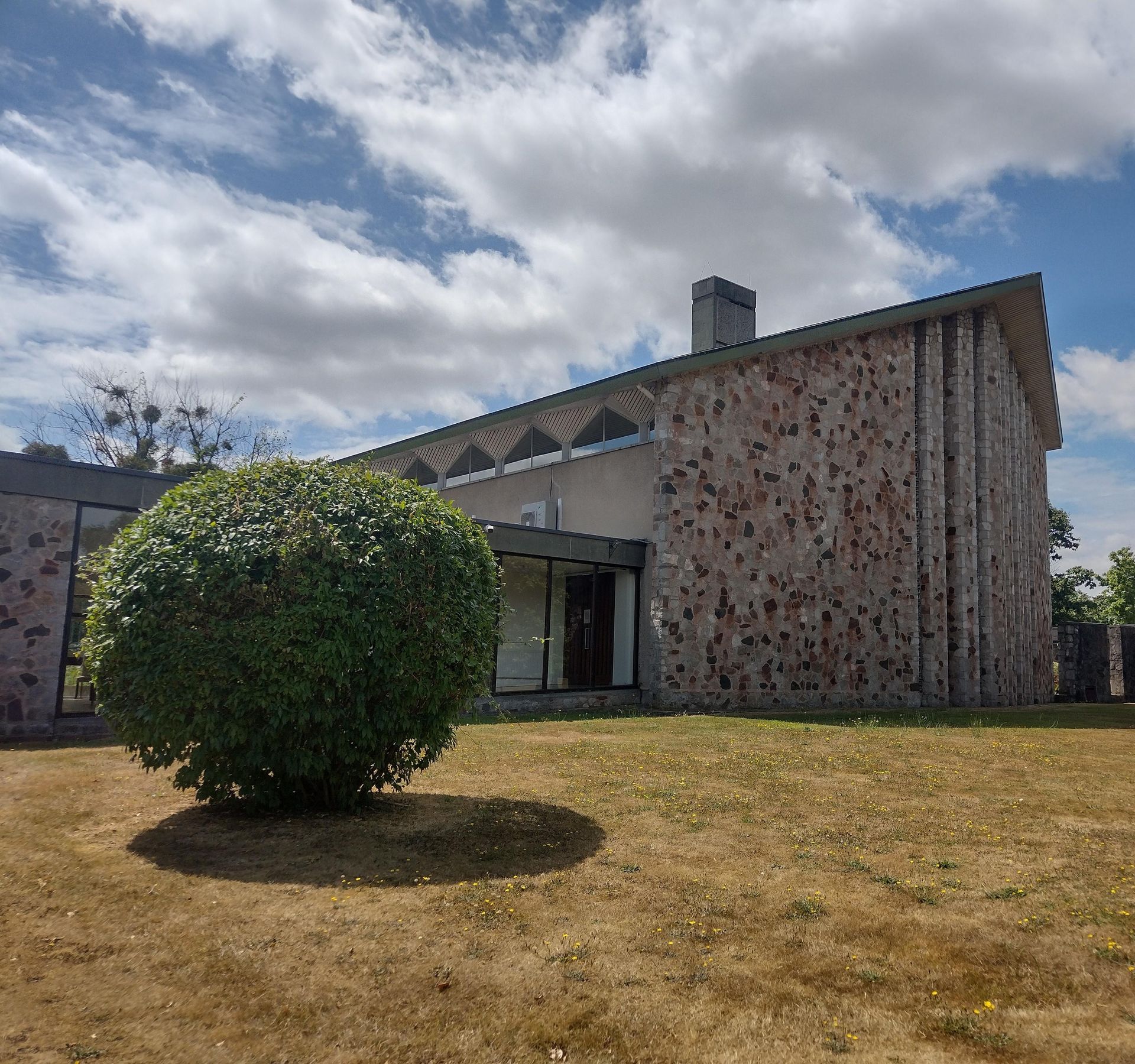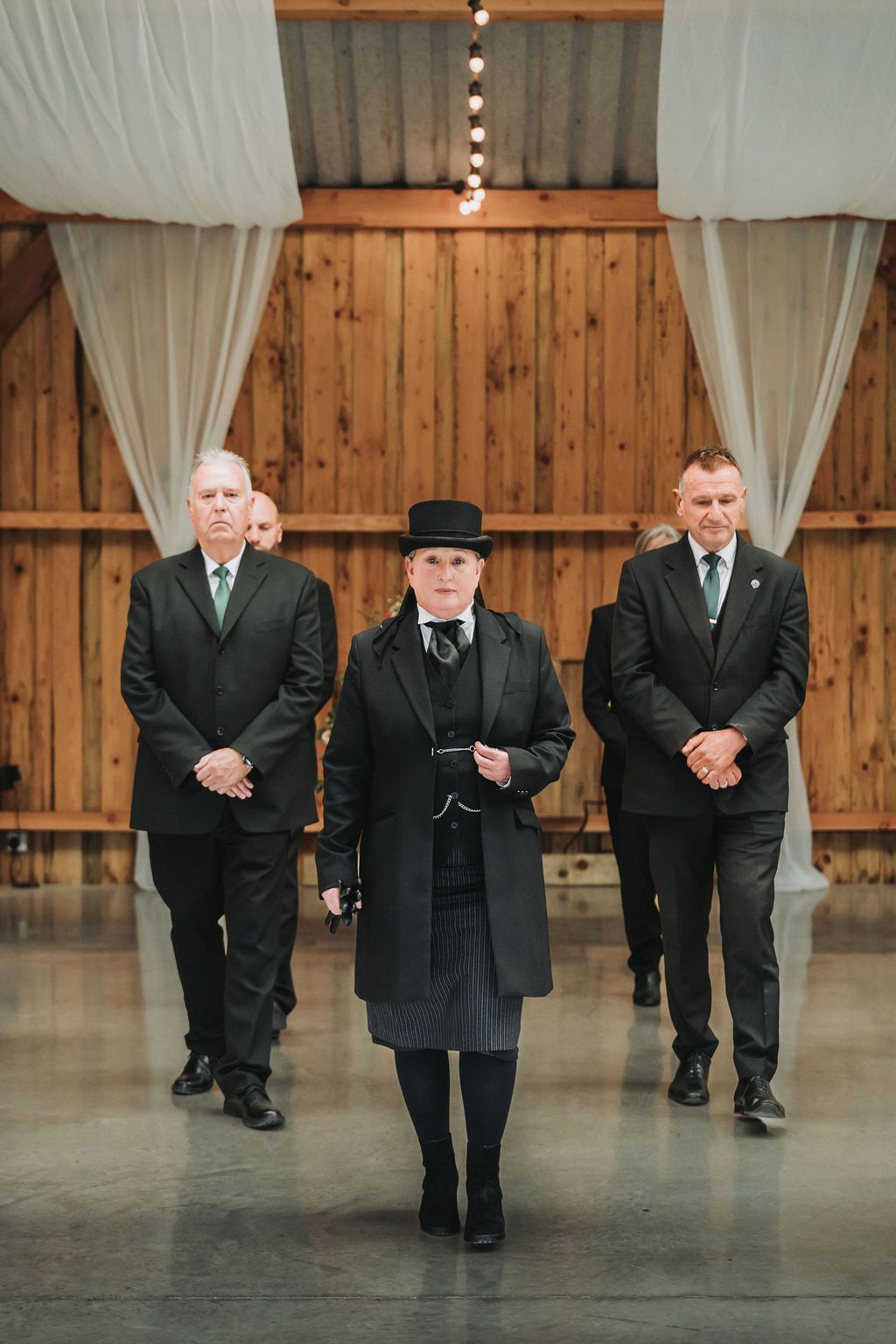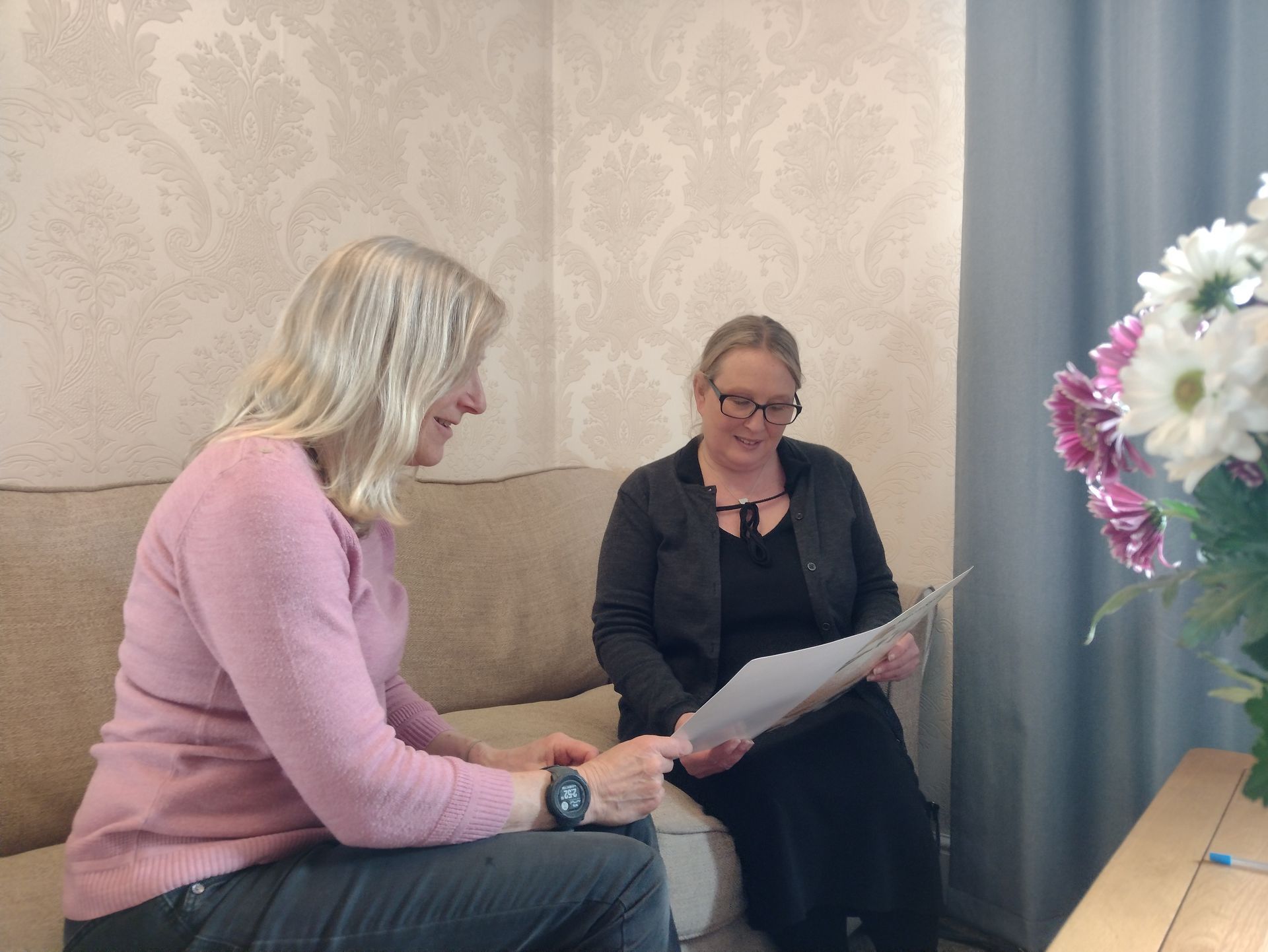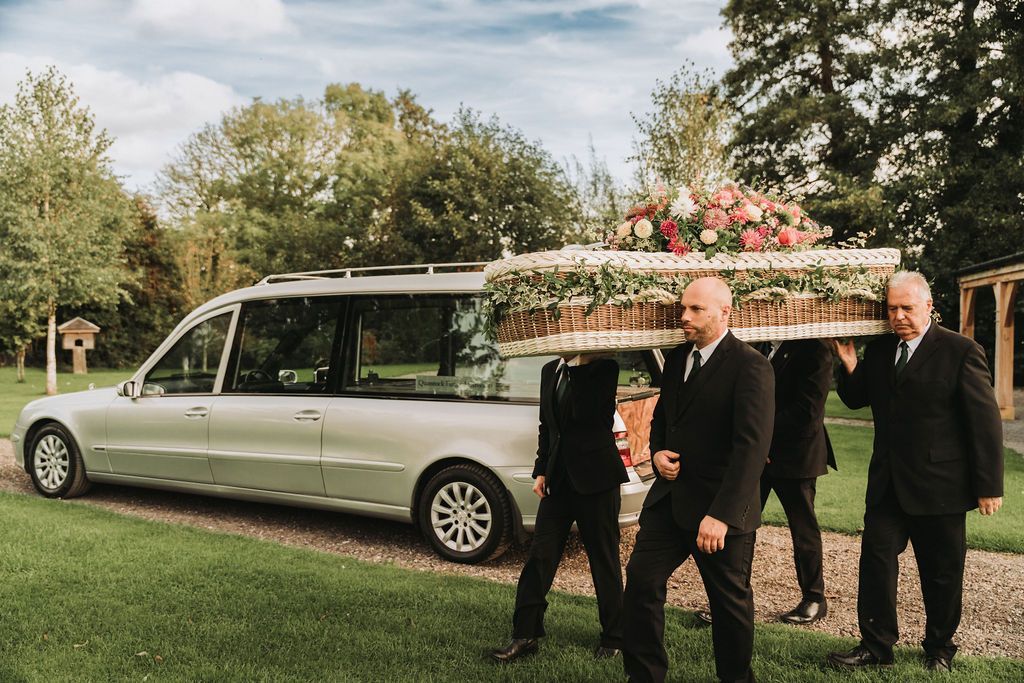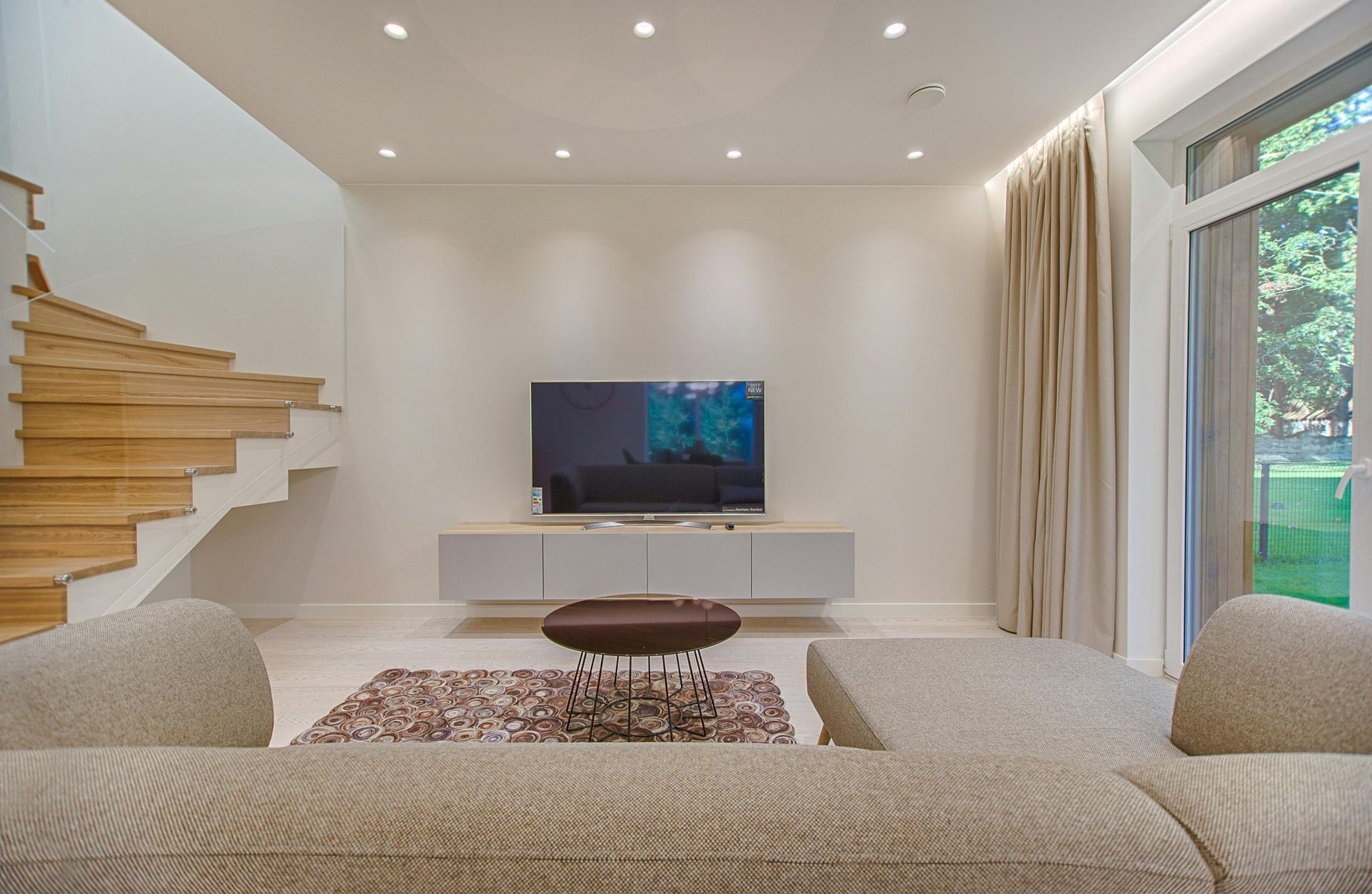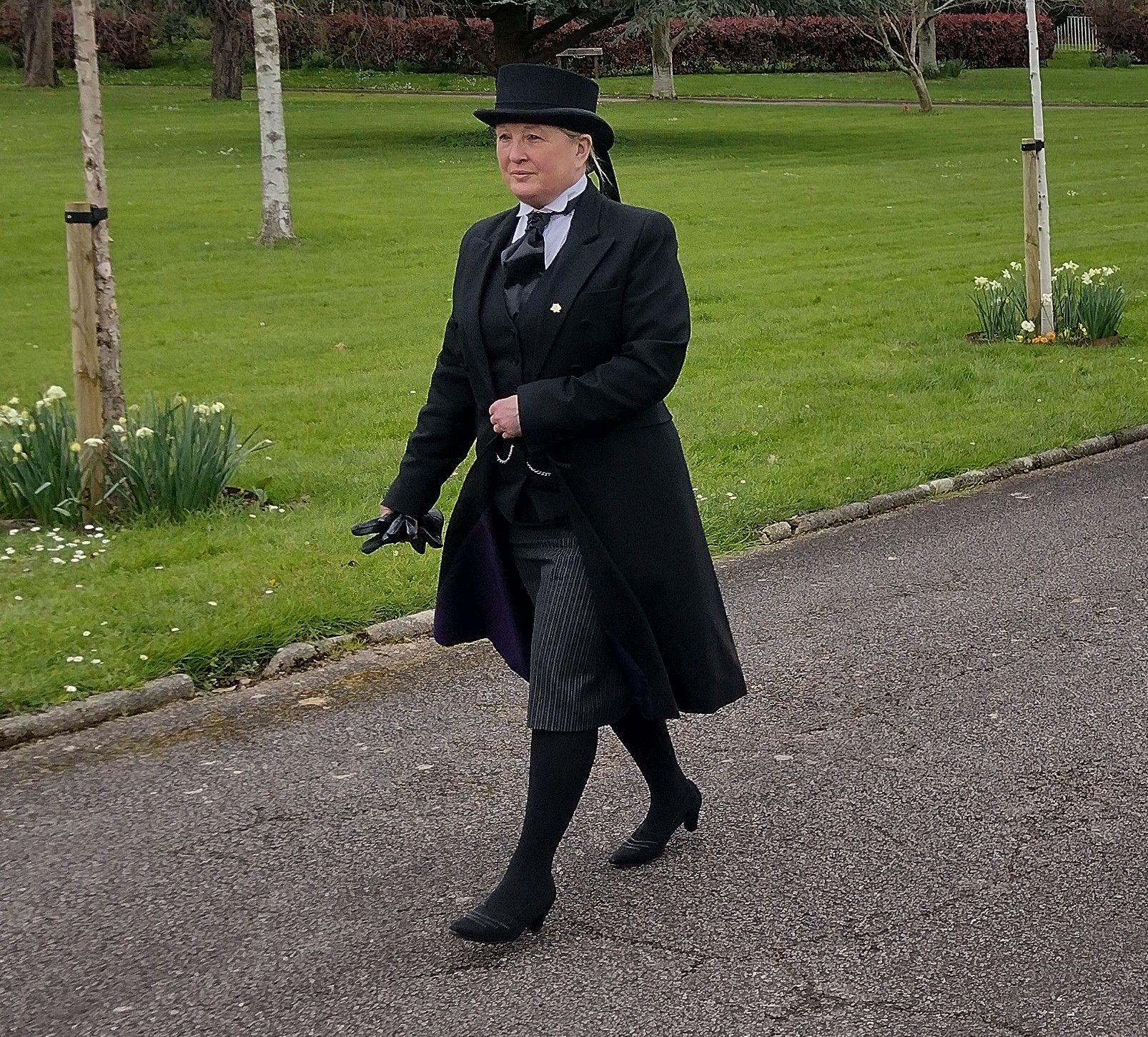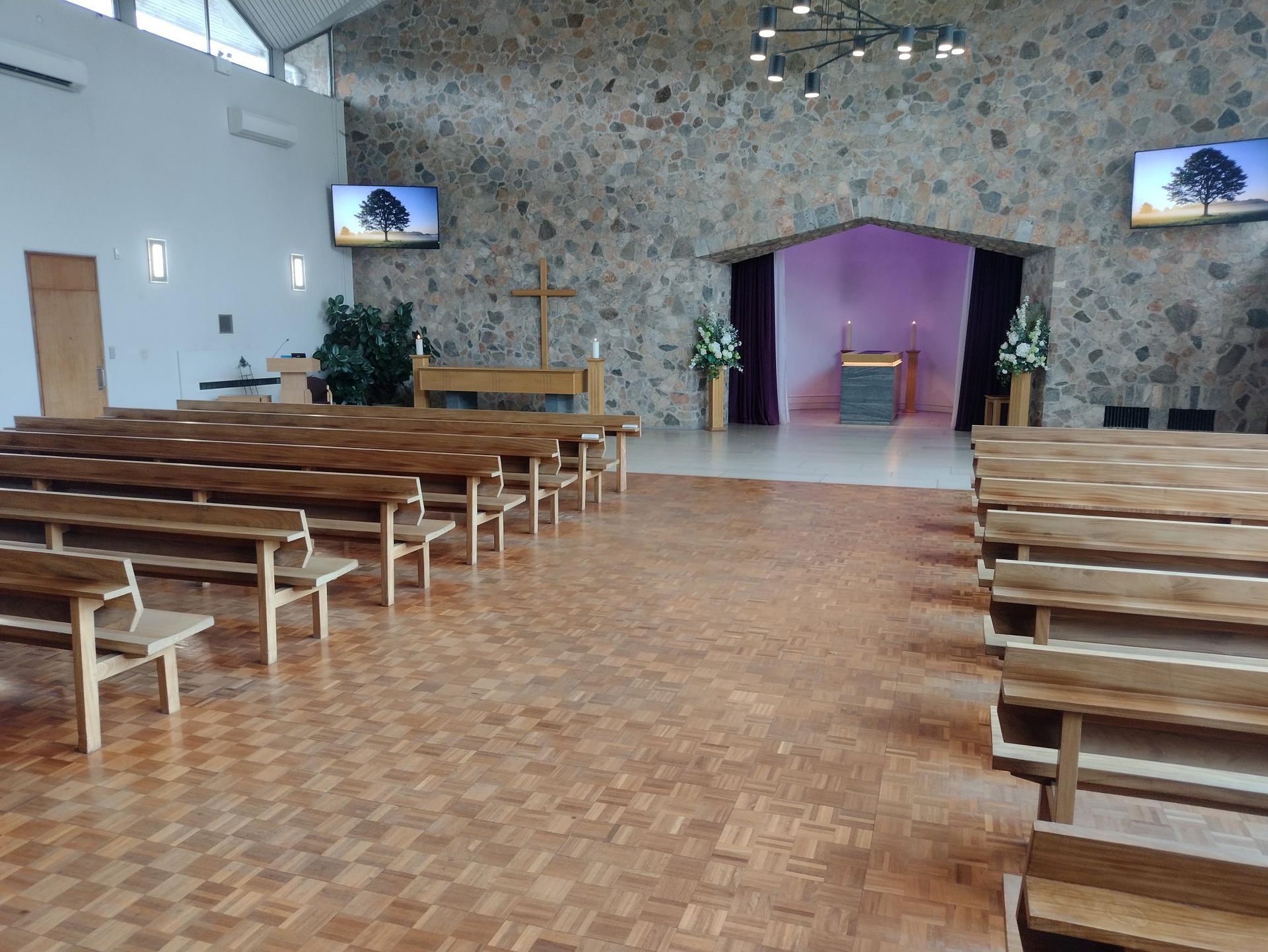Traditional British Funerals
TRADITIONAL BRITISH FUNERALS

Traditional British Funerals: Customs That Remain Strong
Funeral traditions vary across cultures, with many dating back centuries. In the UK, traditional funerals continue to incorporate customs with origins as far back as the Victorian era, a time when formal societal codes around life and mourning were highly structured. Today, families have more freedom in planning funerals, but incorporating traditional rituals can bring a sense of heritage and continuity, offering comfort as we honor loved ones.
The Funeral Announcement: A Long-Standing Custom
Announcing a death in the local newspaper is a time-honored British custom. This notice typically includes the funeral details so that those who may live far away can make arrangements to attend or send flowers. Unless the family requests a private service, most UK funerals are open to the public.
The Tradition of Wearing Black
Wearing black at funerals has roots that go back to the Elizabethan era. Queen Elizabeth I’s funeral made black attire the customary mourning color, with statesmen and even horses draped in black velvet. During the Victorian period, widows traditionally wore black for two years after a spouse’s death, a practice Queen Victoria adopted for over 40 years after Prince Albert’s passing.
While the length of mourning attire is no longer set, black remains the most common color for funeral clothing in the UK. However, some families may request that guests wear brighter colors to celebrate the deceased’s life, especially for children’s funerals. When in doubt, it’s appropriate to ask a close family member or friend about the dress code.
Funeral Processions: A Tradition Across Eras
Funeral processions predate modern British customs, often led in ancient times by spiritual figures with paid mourners. Today, British funeral processions are typically led by a hearse carrying the coffin and flowers, followed by vehicles for close family members.
Some choose a more traditional approach where the funeral director leads the procession by walking ahead of the hearse, a custom dating back to the era of horse-drawn carriages. This gesture allows mourners to pause and pay their respects as the procession passes. Although most modern hearses are motorized, people often still stop as a mark of respect when a procession goes by.
The Ancient Symbolism of Funeral Flowers
Using flowers at funerals is an ancient practice, with floral arrangements found in burial sites dating back over 60,000 years. Originally, they served a practical purpose, but today, flowers symbolize the continuity of life. In the UK, white lilies are the most traditional funeral flower, symbolizing sympathy, purity, and the soul's restoration. Many families also choose flowers that had personal significance to the deceased, with carnations being popular for their range of colors and symbolic meanings.
Burial and Cremation: A Shift in Tradition
While ancient civilizations practiced cremation, it fell out of favor in Britain after the spread of Christianity, which viewed it as pagan. By the end of the 19th century, however, cremation regained popularity as burial costs rose, and cemeteries became overcrowded. Legalized in 1902, cremation is now chosen in 72% of UK funerals.
For those who choose burial, it's traditional for the funeral director to sprinkle soil over the coffin as it’s lowered, sometimes followed by family members who may throw soil, flowers, or personal items as a final act of love. Woodland burials, which emphasise environmental consciousness, are also gaining popularity, returning to the ancient tradition of connecting the body back to nature.
The Wake: A Celebration of Life
In the UK, a wake is often held after the funeral, allowing family and friends to come together and celebrate the person’s life. Traditionally held at a family home or local venue, attendees share stories, memories, food, and drinks as they honor the person they loved. Nowadays, some families opt to forego a formal funeral service and instead hold a “celebration of life” that resembles a wake, often at a later date.
Honoring Traditions with Quantock Funeral Directors in Taunton
Quantock Funeral Directors, serving Taunton and Wellington, is a family-owned business led by Rob and Dawn, offering 24/7 support to families in need. Since our founding, we’ve provided personalised funeral services that balance both traditional and modern elements, honoring rituals that matter to each family we serve. Our services include green and woodland burials, horse-drawn funerals, military honors, and ceremonies for all religious beliefs as well as non-religious life celebrations.
Quantock Funeral Directors are here if you have questions about our services or need guidance, please contact us at [01823] 277938 or visit us at our Taunton location. We’re here to support the Taunton and Wellington communities with compassion and dedication, ensuring every life is celebrated with respect and dignity.
